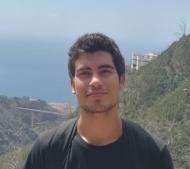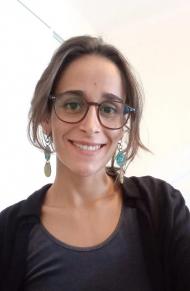MARlab students won summer research fellowships!

Bernardo Jerónimo and Laura Silva, students from NOVA School of Science and Technology, were awarded with 2 Summer Research Fellowships, financed by FCT, I.P., to further develop their work at MARlab. The grants had the duration of 1 month, during September. We had the chance to speak with both Bernardo and Laura. Here's what they had to say about their work and experience:

In August 2021, I applied and was selected for a research initiation scholarship, where I integrated the research team of MARE at FCT NOVA. As a work plan, I was involved in a project whose objective was the comparison of microorganisms that form the plastisphere in distinct microplastics, applying genomics/metagenomics.
Throughout the month of September (the duration of the fellowship), I worked in the laboratories of the research center, where I was able to apply all the methods necessary to achieve the desired goal, from DNA extraction to the identification and comparison of the microorganisms under study.
This fellowship was a wonderful opportunity that allowed me to learn and develop topics that I didn't have much contact with at University, broadening my horizons. I was very well received by the whole research team, who were always available to help me in any situation. It was a very rewarding experience and I am very satisfied with the opportunity that I was given.

As a master’s student of Environmental Engineering, the acquisition of the ‘Initiation to Scientific Research’ grant, entitled 'Verão com Ciência” from the Foundation for Science and Technology, was an amazing opportunity.
Under Work Plan 4 - Identification of bacteria formed in the plastisphere that are involved in biogeochemical cycles, through genomics (16S amplification), I was able to work, for the first time, with the genetic component in the laboratory, which proved to be very interesting, especially due to the wide range of applications, contributing to my growing interest in the field of biotechnology.
The realization of this work plan was quite interesting as it allowed for the unnoticeable, in familiar environments, to be materialized. From water samples, it was possible to isolate bacterial colonies, which, when subjected to concentrations of Hg, showed resistance capacity. These colonies were then submitted to a test that demonstrated the effect of microplastics in this resistance capacity. The 16S gene, of extracted DNA from units of microplastics, was amplified through PCR. From this, it was possible to obtain a sequence that, crossed with databases, resulted in determining the genus and species of the bacteria involved in mercury’s biogeochemical cycle.
